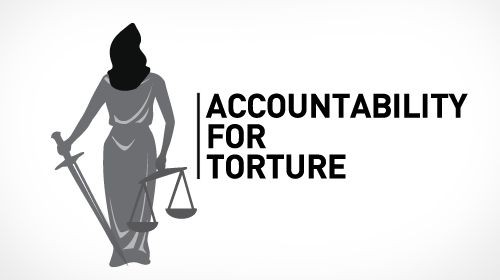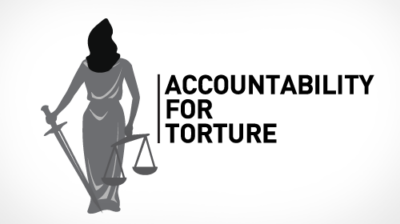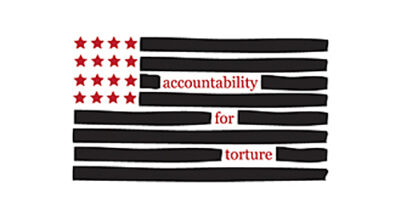
Meshal v. Higgenbotham
What's at Stake
The ACLU filed a lawsuit in November 2009 on behalf of Amir Meshal against four FBI agents for their direct, personal role in his unlawful detention, torture, and rendition from Kenya to Somalia and Ethiopia over a period of more than four months.
Summary
Amir Meshal, a U.S. citizen of Tinton Falls, N.J., was studying Islam in Mogadishu, Somalia, in December 2006 when hostilities broke out. With the airport disabled by bombing, Mr. Meshal fled to neighboring Kenya by boat, where he wandered in the forest for around three weeks seeking shelter and assistance before being arrested by a joint U.S.-Kenyan-Ethiopian task force.
Following his arrest and detention in Kenya without access to an attorney or any process to contest his detention, Mr. Meshal was illegally rendered to Somalia and then to Ethiopia where he was imprisoned in secret for an additional three and a half months. Mr. Meshal was detained for over a total of four months and interrogated over 30 times in three different countries by U.S. officials who threatened to harm him, denied him access to counsel and due process, and falsely accused him of receiving training from al-Qaeda, which Mr. Meshal consistently denied.
Mr. Meshal was finally returned home from Ethiopia on May 27, 2007, and was never charged with a crime.
On June 13, 2014, the district court found that Mr. Meshal had plausibly alleged violations of his Fourth and Fifth Amendment rights, and described his treatment at the hands of U.S. officials as "appalling" and "embarrassing." The court stated that "[t]o deny [Mr. Meshal] a judicial remedy . . . raises serious concerns about the separation of powers, the role of the judiciary, and whether our courts have the power to protect our own citizens from constitutional violations by our government when those violations occur abroad."
Nonetheless, the district court found that its hands were tied – according to its reading of the law, judicial precedent barred the court from allowing Mr. Meshal to move forward with his constitutional claims. The district court granted the government's motion to dismiss the complaint, and in December 2014 the ACLU appealed that decision to the D.C. Circuit Court of Appeals, which in October 2015 upheld the district court's dismissal in a 2-1 decision. In May 2016, the ACLU petitioned the Supreme Court to review whether Mr. Meshal could be denied any judicial remedy for FBI agents’ violation of his constitutional rights. The ACLU’s petition was supported by friend-of-the-court briefs from The Constitution Project, the Commonwealth Lawyers Association, UN experts on torture, and former federal law enforcement officials. In June 2017, the Supreme Court declined to hear the case.
Legal Documents
-
06/27/2017
Denial of Petition for a Writ of Certiorari -
10/03/2016
Reply Brief for Petitioner in Support of Petition to Supreme Court for Writ of Certiorari -
09/20/2016
Brief for the Respondents in Opposition -
07/11/2016
Brief of Commonwealth Lawyers Association as Amicus Curiae in Support of Petition to Supreme Court for Writ of Certiorari -
07/11/2016
Brief of The Constitution Project as Amicus Curiae in Support of Petition to Supreme Court for Writ of Certiorari -
07/06/2016
Brief of Donald Borelli, Joe Navarro, and Mark Fallon as Amicus Curiae in Support of Petition to Supreme Court for Writ of Certiorari -
07/01/2016
Brief of The U.N. Special Rapporteurs on Torture as Amicus Curiae in Support of Petition to Supreme Court for Writ of Certiorari -
05/31/2016
Petition to Supreme Court for Writ of Certiorari
Date Filed: 06/27/2017
Court: Supreme Court (U.S.)
Download DocumentDate Filed: 10/03/2016
Court: Supreme Court (U.S.)
Download DocumentDate Filed: 09/20/2016
Court: Supreme Court (U.S.)
Download DocumentDate Filed: 07/11/2016
Court: Supreme Court (U.S.)
Download DocumentDate Filed: 07/11/2016
Court: Supreme Court (U.S.)
Download DocumentDate Filed: 07/06/2016
Court: Supreme Court (U.S.)
Download DocumentDate Filed: 07/01/2016
Court: Supreme Court (U.S.)
Download DocumentDate Filed: 05/31/2016
Court: Supreme Court (U.S.)
Download Document-
01/12/2016
Appellees' Response to Petition for Panel Rehearing -
12/07/2015
Petition for Rehearing En Banc -
10/23/2015
D.C. Circuit Judgment -
10/23/2015
D.C. Circuit Opinion -
03/02/2015
Reply Brief for Appellant -
02/13/2015
Brief for the Appellees -
12/22/2014
Brief of Donald Borelli in Support of Meshal -
12/22/2014
Brief of U.N. Special Rapporteurs on Torture in Support of Meshal -
12/22/2014
Brief of The Constitution Project as Amicus Curiae in Support of Plaintiff-Appellant -
12/22/2014
Brief of Law Professors James E. Pfander, Carlos M. Vázquez, and Stephen I. Vladeck in Support of Meshal -
12/16/2014
Appellant's Opening Brief
Date Filed: 01/12/2016
Court: Court of Appeals (D.C.)
Download DocumentDate Filed: 12/07/2015
Court: Court of Appeals (D.C.)
Download DocumentDate Filed: 10/23/2015
Court: Court of Appeals (D.C.)
Download DocumentDate Filed: 10/23/2015
Court: Court of Appeals (D.C.)
Download DocumentDate Filed: 03/02/2015
Court: Court of Appeals (D.C.)
Download DocumentDate Filed: 02/13/2015
Court: Court of Appeals (D.C.)
Download DocumentDate Filed: 12/22/2014
Court: Court of Appeals (D.C.)
Download DocumentDate Filed: 12/22/2014
Court: Court of Appeals (D.C.)
Download DocumentDate Filed: 12/22/2014
Court: Court of Appeals (D.C.)
Download DocumentDate Filed: 12/22/2014
Court: Court of Appeals (D.C.)
Download DocumentDate Filed: 12/16/2014
Court: Court of Appeals (D.C.)
Download Document-
06/13/2014
Opinion Granting Government Motion to Dismiss -
10/09/2013
Plaintiff's Status Report -
12/21/2012
Plaintiff's Response to Defendants' 12/5/2012 Notice of Supplemental Authority -
12/05/2012
Defendants' 12/5/2012 Notice of Supplemental Authority -
-
12/05/2012
Exhibit 1
Meshal v. HiggenbothamLegal DocumentsExhibit 1Date Filed: 12/05/2012
Court: District Court (D.D.C.)
Download Document -
12/05/2012
-
07/05/2012
Plaintiff's Response to Defendants' 06/22/2012 Notice of Supplemental Authority -
06/22/2012
Defendants' 06/22/2012 Notice of Supplemental Authority -
-
06/22/2012
Exhibit 1
Meshal v. HiggenbothamLegal DocumentsExhibit 1Date Filed: 06/22/2012
Court: District Court (D.D.C.)
Download Document -
06/22/2012
-
05/24/2012
Plaintiff's Response to Defendants' 05/11/2012 Notice of Supplemental Authority -
05/11/2012
Defendants' Notice of Supplemental Authority -
03/19/2012
Plaintiff’s Response to Defendants' Supplemental Mem. In Support of Motion to Dismiss Second Amended Complaint -
03/06/2012
Defendants’ Supplemental Mem. in Support of Motion to Dismiss Second Amended Complaint -
02/21/2012
Second Amended Complaint -
02/06/2012
Plaintiff's Reply in Support of Plaintiff's Motion for Leave to File Second Amended Complaint -
01/30/2012
Defendants' Response to Plaintiff's Motion for Leave to File Second Amended Complaint -
01/18/2012
Plaintiff's Motion for Leave to File Second Amended Complaint -
-
01/18/2012
Exhibit A -
01/18/2012
Exhibit B
Meshal v. HiggenbothamLegal DocumentsExhibit ADate Filed: 01/18/2012
Court: District Court (D.D.C.)
Download DocumentMeshal v. HiggenbothamLegal DocumentsExhibit BDate Filed: 01/18/2012
Court: District Court (D.D.C.)
Download Document -
01/18/2012
-
12/01/2011
Defendants' Response to Plaintiff's 08/22/2011 Notice of Supplemental Authority -
08/22/2011
Notice of Supplemental Authority in Support of Plaintiff's Opposition to Motion to Dismiss -
-
08/22/2011
Exhibit 1 -
08/22/2011
Exhibit 2
Meshal v. HiggenbothamLegal DocumentsExhibit 1Date Filed: 08/22/2011
Court: District Court (D.D.C.)
Download DocumentMeshal v. HiggenbothamLegal DocumentsExhibit 2Date Filed: 08/22/2011
Court: District Court (D.D.C.)
Download Document -
08/22/2011
-
06/29/2011
Defendants 06/29/2011 Notice of Supplemental Authority -
-
06/29/2011
Exhibit 1
Meshal v. HiggenbothamLegal DocumentsExhibit 1Date Filed: 06/29/2011
Court: District Court (D.D.C.)
Download Document -
06/29/2011
-
03/03/2011
Defendants’ 03/03/2011 Notice of Supplemental Authority -
10/15/2010
Defendants’ Reply to Plaintiff’s Opposition to Motion to Dismiss the Amended Complaint -
09/03/2010
Plaintiff’s Opposition to Motion to Dismiss Amended Complaint -
06/23/2010
Defendants’ Motion to Dismiss Amended Complaint -
05/10/2010
Amended Complaint -
11/10/2009
Complaint
Date Filed: 06/13/2014
Court: District Court (D.D.C.)
Download DocumentDate Filed: 10/09/2013
Court: District Court (D.D.C.)
Download DocumentDate Filed: 12/21/2012
Court: District Court (D.D.C.)
Download DocumentDate Filed: 12/05/2012
Court: District Court (D.D.C.)
Download DocumentDate Filed: 07/05/2012
Court: District Court (D.D.C.)
Download DocumentDate Filed: 06/22/2012
Court: District Court (D.D.C.)
Download DocumentDate Filed: 05/24/2012
Court: District Court (D.D.C.)
Download DocumentDate Filed: 05/11/2012
Court: District Court (D.D.C.)
Download DocumentDate Filed: 03/19/2012
Court: District Court (D.D.C.)
Download DocumentDate Filed: 03/06/2012
Court: District Court (D.D.C.)
Download DocumentDate Filed: 02/21/2012
Court: District Court (D.D.C.)
Download DocumentDate Filed: 02/06/2012
Court: District Court (D.D.C.)
Download DocumentDate Filed: 01/30/2012
Court: District Court (D.D.C.)
Download DocumentDate Filed: 01/18/2012
Court: District Court (D.D.C.)
Download DocumentDate Filed: 12/01/2011
Court: District Court (D.D.C.)
Download DocumentDate Filed: 08/22/2011
Court: District Court (D.D.C.)
Download DocumentDate Filed: 06/29/2011
Court: District Court (D.D.C.)
Download DocumentDate Filed: 03/03/2011
Court: District Court (D.D.C.)
Download DocumentDate Filed: 10/15/2010
Court: District Court (D.D.C.)
Download DocumentDate Filed: 09/03/2010
Court: District Court (D.D.C.)
Download DocumentDate Filed: 06/23/2010
Court: District Court (D.D.C.)
Download DocumentDate Filed: 05/10/2010
Court: District Court (D.D.C.)
Download DocumentDate Filed: 11/10/2009
Court: District Court (D.D.C.)
Download DocumentPress Releases
Court Dismisses ACLU Suit on Behalf of U.S. Citizen Abused by FBI Abroad
ACLU in Court Wednesday to Challenge FBI Agents’ Unlawful Detention and Abuse of American Abroad
ACLU Appears in Court on Behalf of American Citizen Illegally Detained And Mistreated By U.S. Officials
ACLU Lawsuit Charges U.S. Officials Illegally Detained American Citizen

